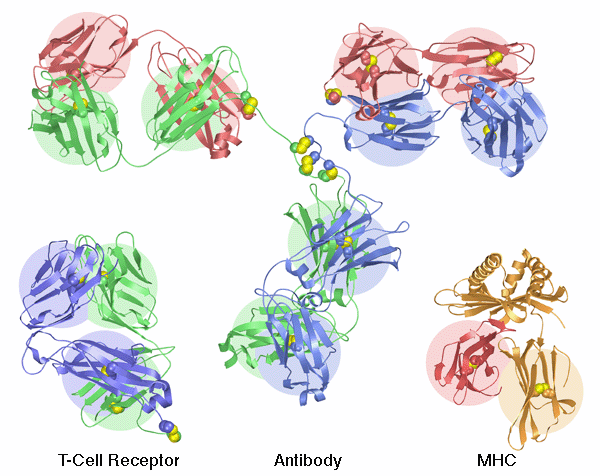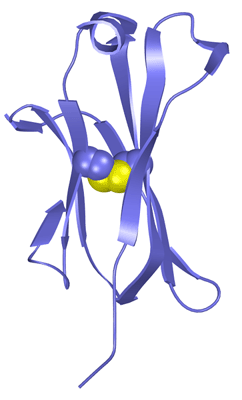|
Inhaltsübersicht | Nanomaschinen | Moleküle | Programme | Kurse | Fun | Links |
||
| > |
Major Histocompatibility Complex

A Family of Folds
Many immune system proteins are built of a similar folding unit, composed of a sandwich of beta sheets (shown with the blocky arrows) locked together with a disulfide bridge between two cysteine amino acids in the center (shown with spheres). This common domain structure shows up again and again as you look through the immune system proteins in the PDB. Three examples are shown here: on the left, the T-cell receptor (1tcr) which has four of these domains; in the center is an antibody (1igt) with 12 of these domains; and on the right is MHC (2hla) with two of these domains. The similarity of the amino acids that form these tight units indicate that many immune system proteins have evolved from a similar ancestor protein.For more information on MHC from a genomic perspective, see the Protein of the Month at the European Bioinformatics Institute.
Next: Exploring the Structure
Previous: Types and Terminology
Last changed by: A.Honegger,
